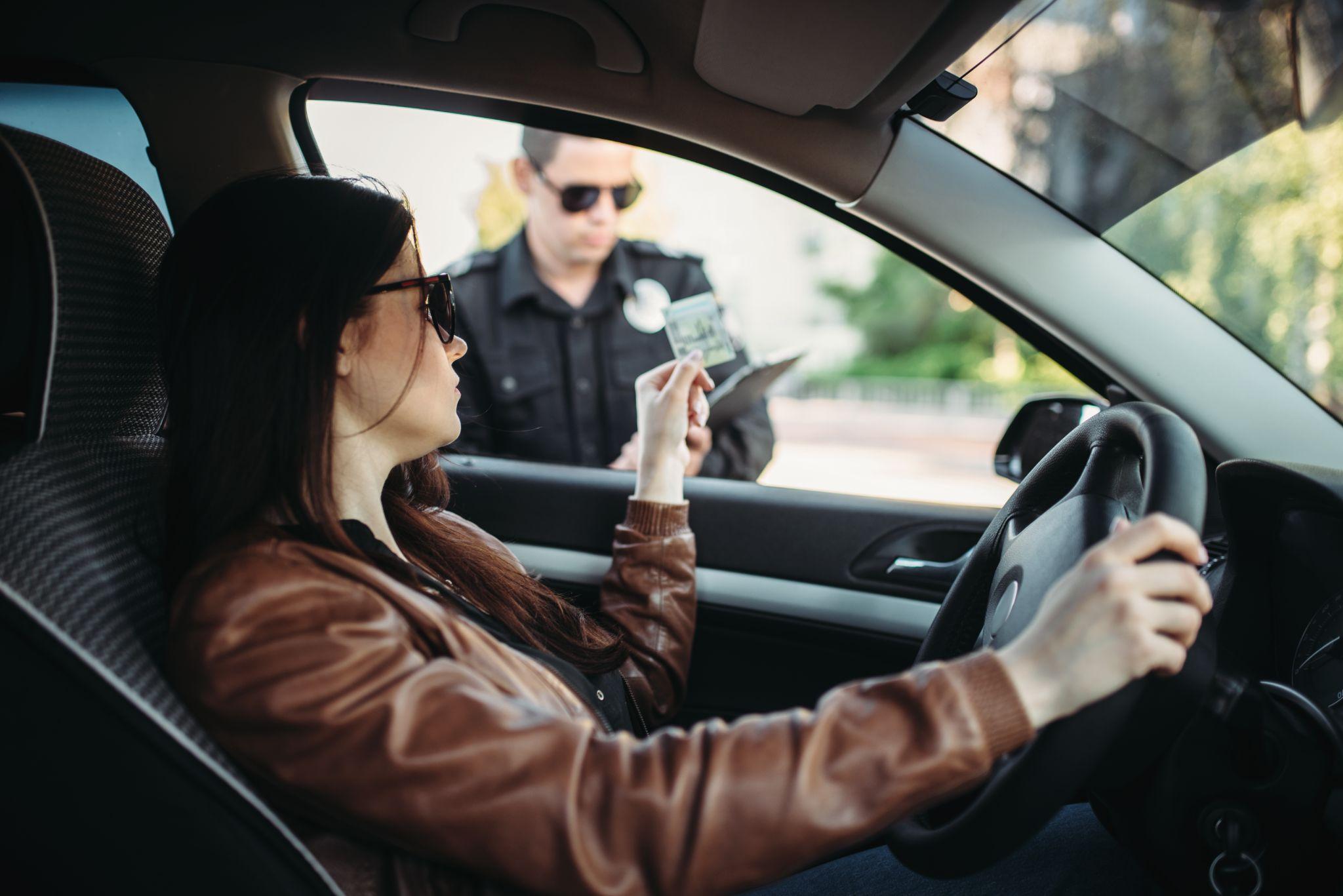
So, you’ve been pulled over—but what can you do besides being nervous? Don’t worry: Nearly every driver gets a traffic stop at least once in their life. While getting pulled over may be scary for both new and experienced drivers alike, knowing what to do (and what’s expected) can help you stay safe and avoid extra fines. Read on to learn how to handle a traffic stop safely and what you can do to dismiss certain tickets.
What to Do When You’re Pulled Over
While there may be a thousand things going through your mind when being pulled over, it’s crucial to remain calm and prioritize your safety. By staying calm and driving safely, you’ll make the process much smoother and potentially avoid extra fines and violations—and maybe even the ticket itself.
Follow these steps to make sure your next traffic stop is as safe and easy as possible:
1. Find a safe place to pull over.
Your first priority should always be to find a safe place to pull over. Just because a traffic cop flags you down in a busy area doesn’t mean you should try to pull over immediately. If you try to stop too soon, you may break additional traffic laws and rack up more violations, all the while sacrificing the safety of yourself and others.
Instead, use your turn signals or hand gestures to confirm that you intend to pull over. Try to look for well-lit spots that won’t obstruct traffic, such as a highway breakdown lane or rest stop.
2. Park the car and turn off the engine.
Once you’ve found a safe spot to pull over, park your car and make sure to leave plenty of space for the traffic cop to park behind you. Once pulled over, place the car in park, turn off the engine, and keep both hands visible on the wheel. You may also want to turn on your emergency blinkers if the road is particularly busy or if visibility is poor.
If the officer questions why you didn’t pull over immediately, simply state that you were trying to find a safe spot. Most will understand, especially if you remain calm and civil during the process.
3. Gather your documents and roll down the window.
Gather any necessary documents to support your legal right to operate the vehicle. At a minimum, these documents include your state driver license and vehicle registration. If you’re driving a rented vehicle, be sure to include the vehicle rental agreement, including your name and signature. You may also want to provide your passport if you’re driving in a foreign country.
Be sure to wait to search for these documents until the officer has reached your vehicle so they can see what you are doing. You should avoid movement to your glove compartment or center console while the officer is parked behind you or walking up to you. Doing so makes them very nervous since they don’t know what you are digging around for.
4. Remain calm and civil.
Nobody likes being pulled over. While it’s okay to feel annoyed or upset, being rude and uncooperative will only make the situation worse. Failure to cooperate can also result in additional charges—or it may be just enough to convince the officer to not let you off with a warning.
In the extreme case of detainment or arrest, do not resist. Even if you don’t believe the action is justified, resisting arrest or detainment comes with severe charges and will only escalate the situation and can put you and the officer’s safety at greater risk.
5. Follow the police officer’s instructions.
As an extension of the above, make sure to always follow the officer’s instructions and cooperate to the best of your ability. The more cooperative you are, the easier the process will be. Also, always ask to move your hands off the wheel if gathering an item or document could place your hands out of view. In many cases, an officer will be more likely to grant exceptions and warnings to those who are calm and civil.
6. Sign the citation and follow the instructions.
Regardless of whether you intend to pay the ticket, fight it in court, or try to have it dismissed, you’ll need to sign the citation before you can be sent on your way. In most cases, the officer will review the next steps with you, which should also be printed on the ticket itself. While you can always follow these instructions and simply pay the ticket, you may have more options than you realize. Read on to learn your options and how you can even get the ticket (and its hefty fines and points) dismissed entirely.
What to Do if You Get a Ticket

Depending on your state, you may have several options for resolving a ticket. Some states may even allow you to dismiss certain tickets by taking a defensive driving course (a.k.a. a traffic school or driver improvement course).
Option 1: Pay the Ticket
The simplest way to resolve a ticket is to simply pay the fine. However, this option isn’t always ideal: In addition to paying a potentially hefty fine, you may also accumulate points on your driving record. While a point or two doesn’t hurt, you may risk getting your license suspended if you’ve already accumulated several.
As a result, drivers should also consider alternative options to avoid racking up points, such as fighting the ticket in court or having the ticket dismissed.
Option 2: Fight the Ticket in Court
You also have the option to fight the ticket in court. While contesting a ticket can sometimes get it dismissed, it can also compound the consequences if you aren’t successful. It’s important to have a good case before trying to fight a ticket. While hiring a traffic attorney can help increase your chances of success, note that the overall cost is often greater than most tickets.
As a result, you should only bother fighting a ticket if it’s necessary to avoid points that could lead to suspension.
Option 3: Dismiss the Ticket
Many states also allow drivers to dismiss tickets by completing a defensive driving course (sometimes called other names such as traffic school or driver improvement, depending on the state), especially if it’s a minor or first-time offense. While defensive driving courses have traditionally been held in-person, many states are now allowing drivers to take the course entirely online through approved driving schools.
Each state handles tickets differently, but, most of the time, you will pay a court fee in addition to the cost of taking the online defensive driving course. It is typically still lower than the cost if you’d just paid the fine. Plus, in most states, taking a course will keep points from going on your record.
Dismiss Tickets Online with Ticket School
Ticket School’s state-approved online defensive driving courses can be taken anytime, anywhere, and on any device. Unlike most traditional driving courses, our curriculum is interactive and engaging and can be completed on your schedule. Register and begin your course today online now or call us at (800) 558-9887 with any questions or for more information.
